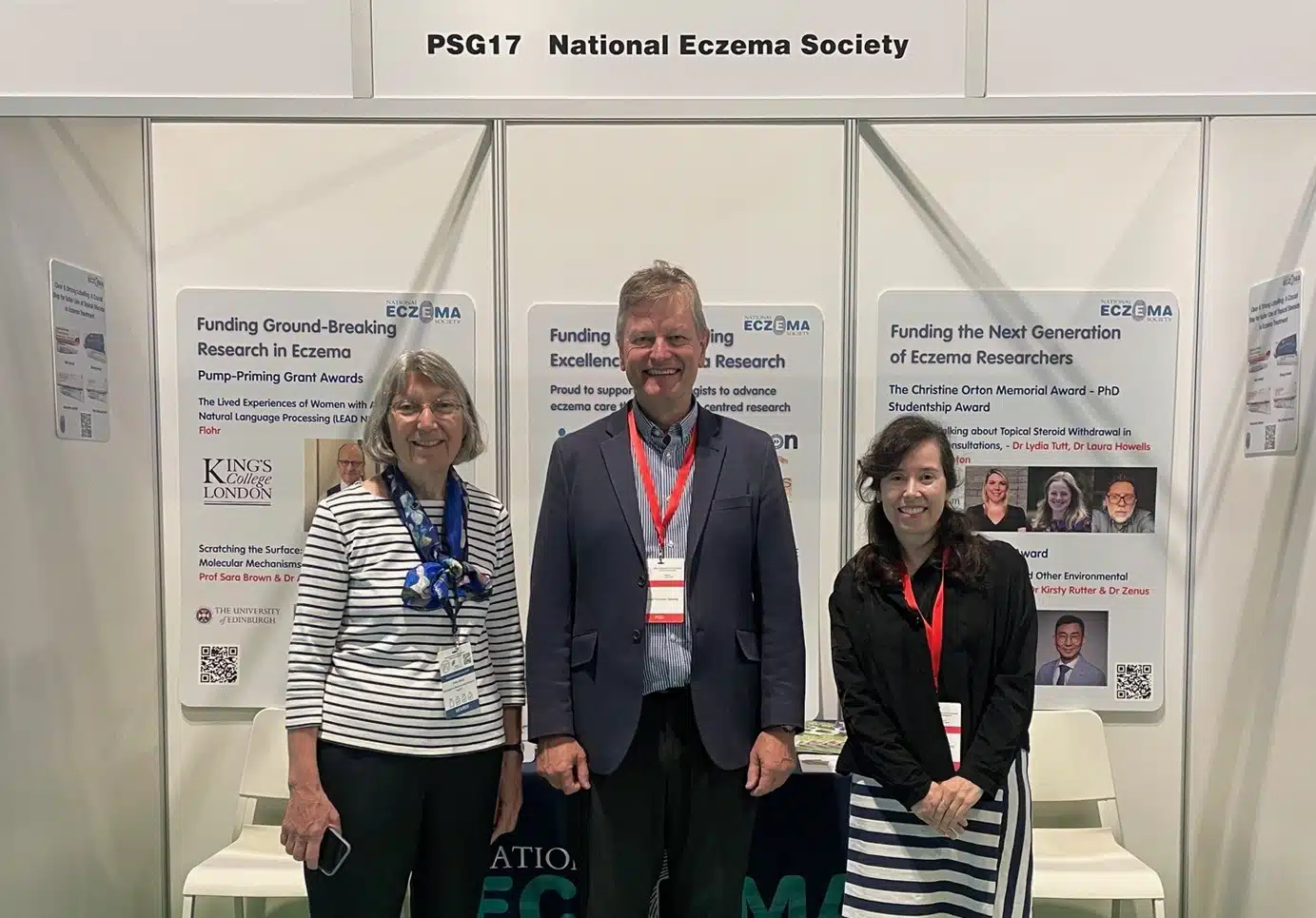The National Eczema Society team was in Glasgow early July for the British Association of Dermatologists’ 105th Annual Meeting. As the UK charity dedicated to eczema, we’re here to make sure the condition is taken seriously, listened to, and properly understood by those shaping dermatology care.
From our patient support information stand, we were able to share updates with dermatologists on the research we’re funding, our campaign for clearer steroid labelling, and the trusted information we provide to help patients and healthcare professionals alike.
We’re proud to be the voice for eczema patients, because eczema deserves more attention, more understanding and much better support. Attending events like this gives us an opportunity to network and learning from other skin charities too.
We also get to hear about the latest research and developments. The conference programme covers all skin conditions and it was good see to see many sessions on eczema. Topics varied from henna tattoos and contact allergy, to wearable devices for self-management, to prescribing of emollients for older people with eczema. It was great to see so many presentations on the newer systemic treatments for more severe eczema, and hear reassuring updates from the A-STAR research study that is tracking the safety and effectiveness of these newer treatments.
It was really exciting to hear how researchers are now exploring how treatments can change how eczema progresses (so called ‘’disease modification’), to prevent future symptoms. Dr Paula Beattie gave an excellent talk on the importance of fully considering people’s other health issues when treating moderate to severe eczema. The use of Artificial Intelligence (AI) in dermatology care was a hot topic this year, and good to see talks on hyperpigmentation in skin of colour, the mental health impacts of skin conditions, and topics like photosensitive atopic dermatitis that don’t usually get a lot of attention.
It was also very encouraging to have two sessions on topical steroid withdrawal (TSW), focusing especially on communication and TSW. These were well attended by the dermatology community and a sign awareness is growing.
Huge thanks to Dr Alia Ahmed and Dr Maria-Angeliki Gkini for their clear, compassionate advice on how clinicians can better support patients experiencing TSW. Our key takeaways were:
– Patients often feel dismissed or distressed in clinical settings
– The mental health impact is not well recognised
– Validating patients’ experiences matters, even when views differ
– More research is urgently needed!
National Eczema Society is proud to fund in this space and look forward to guidance on TSW from the British Association of Dermatologists soon.

